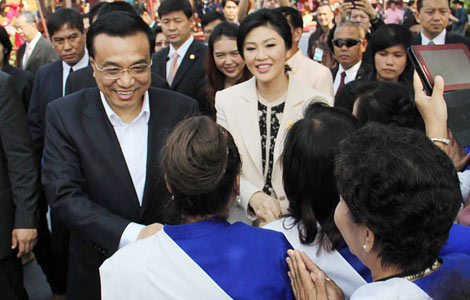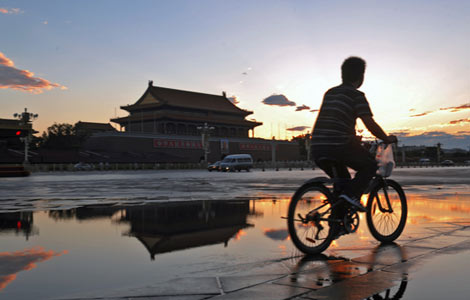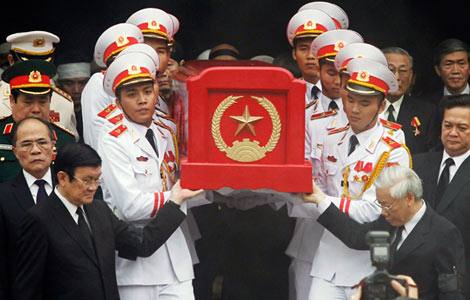Dispute on immunity for US troops blocks pact
Updated: 2013-10-13 09:08
(Agencies)
|
||||||||
"ZERO OPTION"
The Afghan government rejected an initial US proposal on immunity at the start of the year and it has been a sticking point ever since. The failure to reach a deal could prompt the US to pull all its troops out after 2014, in an outcome known as the "zero option".
It was considered almost unthinkable a few months ago, but US officials have since raised the possibility, with an implicit warning that Afghan security forces are not ready to fight the Taliban-led insurgency without their help.
The collapse of similar talks between the United States and Iraq in 2011 - partly over the issue of immunity - led to the United States completely ending its forces' mission there rather than maintaining a significant presence.
US officials had said earlier that Kerry did not intend to close a deal on the Bilateral Security Agreement (BSA) during the visit, but Washington is concerned that as Afghan election campaigning intensifies it will be harder to broker a deal.
Karzai's brothers this week began their campaign to take power and plan to offer the outgoing president, constitutionally barred from running again, a position in their government.
The April election is seen as the most crucial since the US-led overthrow of the Taliban in 2001, which brought Karzai to power.
International aid donors, who provide Afghanistan with the bulk of its income, hope a transfer of power will enable the country to move beyond years of damaging allegations of corruption and maladministration.
In an interview this month, Karzai blamed corruption on irresponsible spending by donors and said coalition troops had brought nothing but suffering because security was still poor.
Security has been deteriorating, increasing worry about the country's prospects after Western forces leave. On Saturday, a car bomb killed four people in the eastern city of Jalalabad.
Efforts to draw the Taliban into negotiations have come to nothing. The militants say they will fight on until all foreign forces leave and they dismiss Karzai as a US "puppet".
The Afghan president said the question of whether Afghanistan would be able to try US citizens for crimes committed on its territory could not be decided by his government.
"The issue of jurisdiction is one such issue that is beyond the authority of the Afghan government and it is only and entirely up to the Afghan people to decide upon through two mechanisms," said Karzai, referring to the country's traditional assembly and its parliament.
Kerry said US troops operated under the same standards wherever they were deployed.
"Wherever our forces are found, they operate under the same standard," he said. "We are not singling out Afghanistan."

 Chinese education for Thai students
Chinese education for Thai students
 Djokovic retains Shanghai Masters title
Djokovic retains Shanghai Masters title
 Working group to discuss sea issues
Working group to discuss sea issues
 Draft regulation raises fines for polluters
Draft regulation raises fines for polluters
 Other measures for the capital to become green
Other measures for the capital to become green
 Colombian takes wingsuit crown
Colombian takes wingsuit crown
 Vietnam buries heroic general
Vietnam buries heroic general
 Road to clean air starts with new energy vehicles
Road to clean air starts with new energy vehicles
Most Viewed
Editor's Picks

|

|

|

|

|

|
Today's Top News
No new findings over Arafat's death: official
Chinese firm joins UK airport enterprise
Senate leader 'confident' fiscal crisis can be averted
Working group to discuss sea issues
Man hospitalized years after amputating own leg
Detained US citizen dies in Egypt
Senate leads hunt for shutdown and debt deal
Draft rule raises fines for polluters
US Weekly

|

|








